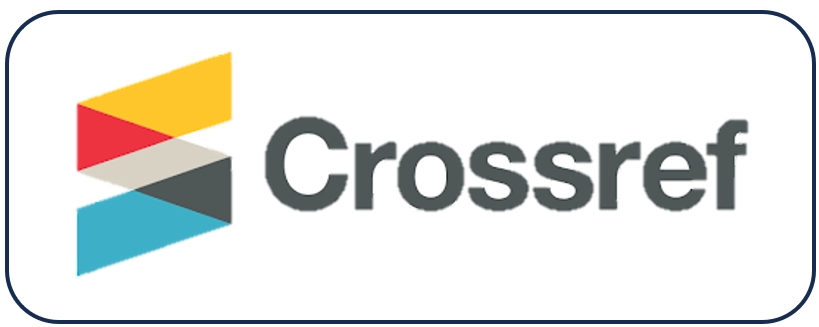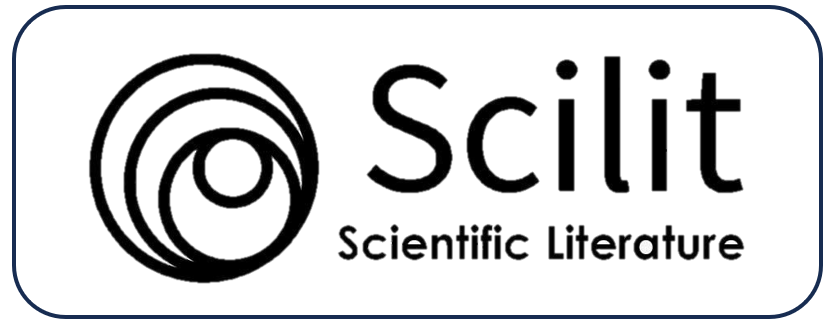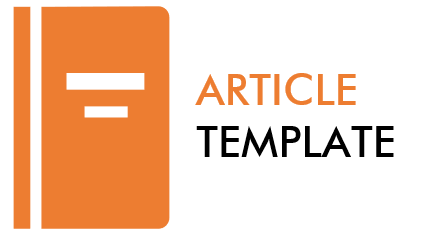Persepsi Pengajar dan Pembelajar Bahasa Inggris Terhadap Penggunaan Artificial Intelligence (AI) untuk Literary Writing
DOI:
https://doi.org/10.31002/transformatika.v8i1.1505Keywords:
artificial intelligence,english teacher, literary writing, english learnerAbstract
Literary Writing focuses on writing literary works, such as poetry, drama, short stories and other types of literary writing. The practice of writing Literary Writing provides an experience that is not easy for English language learners. This research is a case study with the research subjects being English teachers and learners. Research data was taken from the results of the questionnaire. This research aims to identify the use of Artificial Intelligence (AI) for learning Literary Writing as seen from the perceptions of English language teachers and learners. The research results show that Artificial Intelligence (AI) helps English teachers to prepare learning plans and materials, create an interactive and attractive learning atmosphere, and evaluate Literary Writing learning outcomes. Furthermore, research shows that the use of Artificial Intelligence (AI) for English learners is useful for developing ideas and improving writing skills, correcting English grammatical errors, and enriching vocabulary. Apart from that, there is a negative side to using Artificial Intelligence (AI), namely dependency which limits creativity and critical thinking skills for English language learners. Thus, English teachers must monitor the use of Artificial Intelligence (AI) when used in classroom learning activities.
References
Adam, A. A. S., & Babiker, Y. O. (2015). The Role of Literature in Enhancing Creative Writing from Teachers’ Perspectives. English Language and Literature Studies, 5(1). https://doi.org/10.5539/ells.v5n1p109
Amala, E., & Widayati, S. (2021). Analisis Ekologi Karya Sastra Pada Novel Rindu Terpisah Di Raja Ampat Karya Kirana Kejora Sebagai Alternatif Bahan Ajar Di Sekolah Menengah Atas. Jurnal Griya Cendikia, 6(2), 180–190. http://dx.doi.org/10.47637/griya-cendikia.v6i2.95
Artika, I. W. (2015). Teori Dalam Pengajaran Sastra. PRASI, 10(19), 18–27. https://doi.org/10.23887/prasi.v10i19.8850
Dorji, J. (2021). Enhancing Academic Writing Skill Through Mini Lessons and Revision. JET (Journal of English Teaching), 7(1), 56–66.
https://doi.org/10.33541/jet.v7i1.2272
Ernawati, Z., Mariati, S., & Maslikatin, T. (2017). Kajian Psikologi Wanita Tokoh Utama Novel Air Mata Tuhan Karya Aguk Irawan M.N. Pubika Budaya, 5(2), 102–108. https://jurnal.unej.ac.id/index.php/PB/article/view/6001
Hyland, K. (2022). English for Specific Purposes: What is it and Where is it Taking Us? ESP Today, 10(2), 202–220. https://doi.org/10.18485/esptoday.2022.10.2.1
Istiqomah, N., & Sumartini, Mukh. D. (2014). Sikap Hidup Orang Jawa Dalam Novel Orang-Orang Proyek Karya Ahmad Tohari. Jurnal Sastra Indonesia, 3(1), 1–9. http://journal.unnes.ac.id/sju/index.php/jsi
Kartika, S., Uin, A., & Surabaya, S. A. (2023). Exploring The Literary Merits And Controversies Of “Fifty Shades Of Grey” Movie In Contemporary Popular Culture. Language Circle: Journal of Language and Literature, 18(1). https://doi.org/10.15294/lc.v18i1.46493
Kasprabowo, T., Soepriatmadji, L., Yuliani Rahayu, E., & Stikubank, U. (2023). “From now on, I am Fearless” Portraying Students’ Learning Process in Creative Writing Class through their Poems. LANGUAGE CIRCLE: Journal of Language and Literature, 18(1). http://journal.unnes.ac.id
Latifi, Y. N., & Udasmoro, W. (2020). The Big Other Gender, Patriarki, Dan Wacana Agama Dalam Karya Sastra Nawāl Al-Sa’dāwī. Jurnal Studi Gender Dan Islam, 19(1), 1–20. https://doi.org/10.14421/musawa.2020.191.1-20
Misnawati, M., Poerwadi, P., Cuesdeyeni, P., Wiyanto, M. S., Christy, N. A., Veniaty, S., Ramadhan, I. Y., Diplan, D., Anwarsani, A., & Rahmawati, S. (2022). Percepatan Produksi Karya Sastra Mahasiswa Program Permata Merdeka Dengan Memanfaatan Voice Typing. Jurnal Ilmiah Kanderang Tingang, 13(1), 103–116. https://doi.org/10.37304/jikt.v13i1.154
Mohammad, S. M. (2020). Artificial Intelligence In Information Technology. International Journal Of Innovations in Engineering Research and Technology (IJIERT), 7(6), 168–175. https://repo.ijiert.org/index.php/ijiert/article/view/373
Monthabeng, M. H., Montle, M. E., & Mogoboya, M. J. (2022). The Representation of African Traditional Women in African Literature: A Feminist Study of Buchi Emecheta’S The Joys of Motherhood. LANGUAGE CIRCLE: Journal of Language and Literature, 17(1). http://journal.unnes.ac.id
Mushthoza, D. A., Syariatin, N., Tahalele, O., Telussa, S. I., RAsmita, & Mokodenseho, S. (2023). Analyzing The Impact On Artificial Intelligence (AI) On The Future Of English Language Teaching and Learning. Journal on Education, 6(1), 1549–1557. https://doi.org/10.31004/joe.v6i1.3115
Nash, B. L., Hicks, T., Garcia, M., Fassbender, W., Alvermann, D., Boutelier, S., McBride, C., McGrail, E., Moran, C., O’Byrne, I., Piotrowski, A., Rice, M., &
Young, C. (2023). Artificial Intelligence in English Education: Challenges and Opportunities for Teachers and Teacher Educators. English Education, 55(3), 200– 233. https://doi.org/10.58680/ee202332555
Nuraeni, I., & Zaman Fadhly, F. (2016). Creative process in fiction writing of three Indonesian writers. Indonesian EFL Journal, 2(2), 117–126.
https://doi.org/10.25134/ieflj.v2i2.644
Putra, D. M., & Suharto, R. P. (2022). Pembuatan Vlog Bisnis oleh Mahasiswa Bahasa Inggris sebagai Model Pembelajaran Online Mata Kuliah Speaking. Jurnal Terapan Pendidikan Dasar Dan Menengah, 2(4), 712–719. https://doi.org/10.28926/jtpdm.v2i4.683
Simangunsong, H. L., Santoso, B., Doramia, A., Program, L., & Kenotariatan, S. M. (2012). Perlindungan Hak Cipta Terhadap Pembajakan Karya Sastra Novel Versi E-Book Di Tokopedia. Notarius, 13(1). https://doi.org/10.14710/nts.v13i2.30504
Simaremare, J., Asbari, M., Santoso, G., & Rantina, M. (2023). Sastra Menjadi Pedoman Sehari-hari Telaah Singkat Karya Sastra Menurut Para Ahli. Jurnal Pendidikan Transformatif (Jupetra), 2(3), 57–60. https://doi.org/10.9000/jpt.v2i3.238
Singh, C. K. S., Ong, E. T., Singh, T. S. M., Maniam, M., & Mohtar, T. M. T. (2021).Exploring ESL Learners’ Reading Test Taking Strategies. Studies in English Language and Education, 8(1), 227–242. https://doi.org/10.24815/siele.v8i1.18130
Suharto, A. W. B., & Kusumaningrum, E. (2022). Sumber Imajinasi Kreatif Ahmad Tohari dalam Menulis Karya Sastra (Source of Ahmad Tohari’s Creative Imagination in Writing Literary Works). Indonesian Language Education and Literature, 8(1), 48. https://doi.org/10.24235/ileal.v8i1.10590
Suharto, R. (2023). Identifying Students’ Perceptions on YouTube Media in English Learning for MICE. In Asshika: Journal of English Language Teaching & Learning. Pages (Vol. 1, Issue 1). http://dx.doi.org/10.33394/jollt.v11i1.6883
Suharto, R. P. (2022a). Investigating Students’ Perceptions on E-Learning Materials and Tools for English for MICE. Metathesis: Journal of English Language, Literature, and Teaching, 6(2), 179–189. https://doi.org/10.31002/metathesis.v6i2.153
Suharto, R. P. (2022b). Persepsi Mahasiswa Bahasa Inggris terhadap Penggunaan YouTube sebagai Media Pembelajaran Online Matakuliah English for MICE. Jurnal Terapan Pendidikan Dasar Dan Menengah, 2(4), 704–711. https://doi.org/10.28926/jtpdm.v2i4.681
Suharto, R. P. (2023a). Identifying Students’ Perceptions on YouTube Media in English for MICE. ASSHIKA: Journal of English Language Teaching & Learning, 1(1), 42–49.
Downloads
Published
How to Cite
Issue
Section
License
Copyright (c) 2024 Transformatika: Jurnal Bahasa, Sastra, dan Pengajarannya

This work is licensed under a Creative Commons Attribution-NonCommercial-NoDerivatives 4.0 International License.
























